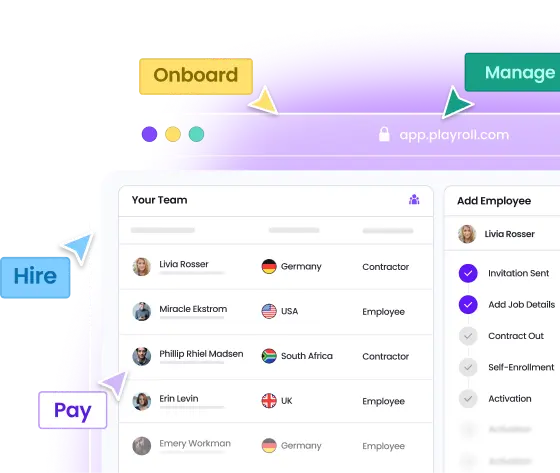What Are the Standard Working Hours In Sweden?
The regular workweek in Sweden spans 40 hours per week across five days, with a maximum of 8 hours per day. A minimum meal interval of 30 minutes must be observed by employees who work more than 5 consecutive hours in a day. In typical working hours, Monday through Friday, the hours are 8:30 or 9:00 AM to 5:00 PM.
Maximum Working Hours in Sweden
In Sweden, the Working Hours Act sets clear boundaries on how much time employees can spend at work. The legal cap stands at 40 hours per week as standard, but there's flexibility built in. Employers can extend hours up to 48 per week if averaged over a four-month period. Overtime is permitted under special needs but must remain occasional and not compromise employee wellbeing.
Industry Specific Exceptions
Certain sectors like transportation, healthcare, agriculture, and public utilities operate under unique schedules due to their nature. These exceptions are usually governed by collective agreements that adapt to industry demands—like 24/7 operations in hospitals or adjusted rest for long-haul drivers.
Managerial and Exempt Employees
Managerial staff and those with significant autonomy—like executives or senior specialists—often fall outside standard working hour regulations. While they might not be bound by hourly limits, they're still covered by occupational health and safety rules to prevent harmful workloads.
Statutory Full-Time Working Hours in Sweden
Full-time employment in Sweden is defined as 40 hours per week. This legal standard applies broadly across industries and forms the foundation for employment terms, affecting everything from overtime calculation to part-time arrangements. Many workplaces use this to support work-life balance.
Overtime Regulations in Sweden
Sweden ensures employees are protected when it comes to extra work. The rules surrounding overtime are designed to balance business flexibility with employee health and fair compensation.
What Counts As Overtime in Sweden?
Any hours worked beyond the 40-hour workweek qualify as overtime. This applies to additional time on regular weekdays as well as extra hours on weekends and holidays. Employers can request overtime on short notice if necessary, but workers retain rights to refuse unreasonable demands.
Maximum Overtime In Sweden
Employees can work up to 200 hours of overtime per year, with a monthly cap of 50 hours. In special situations, the annual limit can extend to 150 additional hours (for a total of 350 hours). Employers cannot ask employees to work more than 48 hours over four weeks or 50 hours per calendar month. Exceeding these caps can lead to fines and enforcement action from the Swedish Work Environment Authority.
Overtime Payout Rates In Sweden
Overtime compensation often includes a 50% premium for the first two hours and 100% (double pay) thereafter. Weekend or holiday overtime typically starts at higher rates. Some workers may opt for compensatory leave – 1.5 to 2 hours off per hour of overtime – instead of cash payment, depending on their contract or collective agreement.
Rest Periods and Breaks In Sweden
Employees are entitled to at least 11 hours of continuous rest daily and 36 hours of weekly rest, usually covering weekends. Anyone working over five hours must receive a 30–60 minute break. Employers must structure schedules to accommodate these breaks and foster a culture that respects downtime.
Night Shifts and Weekend Regulations
Night shifts are generally defined as work between 10:00 PM and 6:00 AM. Weekend work refers to Saturday and Sunday labor. These shifts usually come with pay premiums—either as a percentage of the base rate or fixed bonuses—detailed in employment agreements. Many employers also offer extra time off or health checks for night workers.
Disclaimer
THIS CONTENT IS FOR INFORMATIONAL PURPOSES ONLY AND DOES NOT CONSTITUTE LEGAL OR TAX ADVICE. You should always consult with and rely on your own legal and/or tax advisor(s). Playroll does not provide legal or tax advice. The information is general and not tailored to a specific company or workforce and does not reflect Playroll’s product delivery in any given jurisdiction. Playroll makes no representations or warranties concerning the accuracy, completeness, or timeliness of this information and shall have no liability arising out of or in connection with it, including any loss caused by use of, or reliance on, the information.
.svg)
.svg)
.svg)





.svg)



.png)












.webp)









.svg)